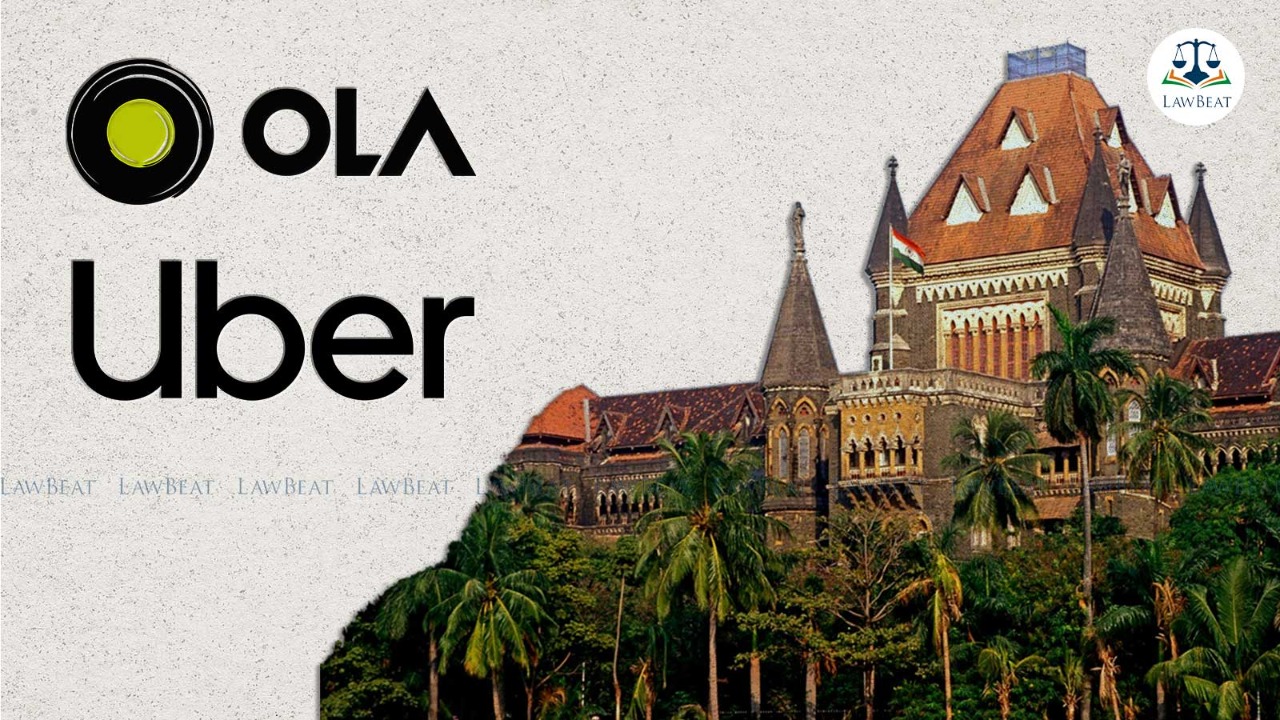Cab aggregators like Uber/Ola to apply for license by March 16 if they wish to continue service in state: Bombay High Court

Noting that the app-based taxi aggregators like Uber/Ola are operating across Maharashtra without valid licenses was an instance of “complete lawlessness”, the Bombay High Court on Monday directed them to apply for valid licenses by March 16 if they wish to continue their services.
A division bench of Chief Justice Dipankar Datta and Justice MS Karnik, however, refrained from prohibiting such cabs from plying observing that it would adversely affect commuters or citizens who avail such cab services.
“We are conscious that restraining the aggregators, who have not yet obtained licenses, will operate to prejudice and detriment of passengers who avail the services,” noted the Court.
The bench was hearing a plea moved by Adv. Savina Crasto highlighting the lack of an effective grievance redressal mechanism for customers using the Uber India app to use their cab services.
She cited an incident from November 2020, when she booked an Uber ride in the city and was dropped off mid-way at a shady dark place. She then found that the Uber app had no effective option for lodging complaints.
As per the plea, the Maharashtra government is yet to approve specific guidelines for issuance of licenses and for regulation of operations of such cab aggregators.
Although the central government had issued the Motor Vehicle Aggregator Guidelines, the aggregators in Maharashtra did not follow the central guidelines and instead, operated on the basis of permits issued to them under the Maharashtra City Taxi Rules, 2017.
On Monday, the bench stated that the above arrangement was unacceptable and was in breach of laws,
“What are you (Maharashtra government) doing? This is complete lawlessness. You are not following the law. The law is very clear that so long as the state government does not have Rules, you (aggregators) will have to follow the central government guidelines. We will stop you (aggregators) from plying.”
Uber India’s counsel Janak Dwarkadas informed the bench that the aggregator had no intention of flouting the law and that it also had an effective grievance redressal mechanism on its app for riders.
The Court, however, said that the mechanism alone was not adequate and a license in accordance with the Motor Vehicles Act was mandatory to regulate the operations of all such cab aggregators.
Dwarkadas further said that on March 5 this year, the Union government had called for a meeting with aggregators and stakeholders for suggestions on the central aggregator’s rules and guidelines.
To this, the bench asked whether the aggregators could escape following statutory guidelines so long as the objections were not decided.
“I have been told by my son that Ola, Uber drivers drive for long hours. My son took a picture and sent it to me. He had taken over the wheel of the cab along the Noida expressway because the driver was dozing off after having been behind the wheel for 24 hours straight. Such are the conditions under which the drivers have to work,” said CJ Datta.
The bench also questioned the state government as to why all provisions of the central government guidelines were not being implemented?
“We will give you (aggregators) 7 days to apply for a license and another 10 days for the state to consider. The law has to be followed,” stated the Court.
Thereby, while directing the aggregators to apply to the concerned regional transport authorities for a license latest by March 16, the bench noted that,
“We are pained to observe that despite the central guidelines having been in place since 2020, the state government has permitted the aggregators to function in Maharashtra without following the guidelines. We grant the opportunity to all such aggregators to apply for a license by March 16, as required by Section 1 (93) of the Act before the competent authority empowered by the state government to issue licenses.”
The bench has also asked the government to decide on the applications within a fortnight thereafter.
The matter is kept to be heard after four weeks.
Cause Title: Savina R. Crasto vs Union of India & Ors
